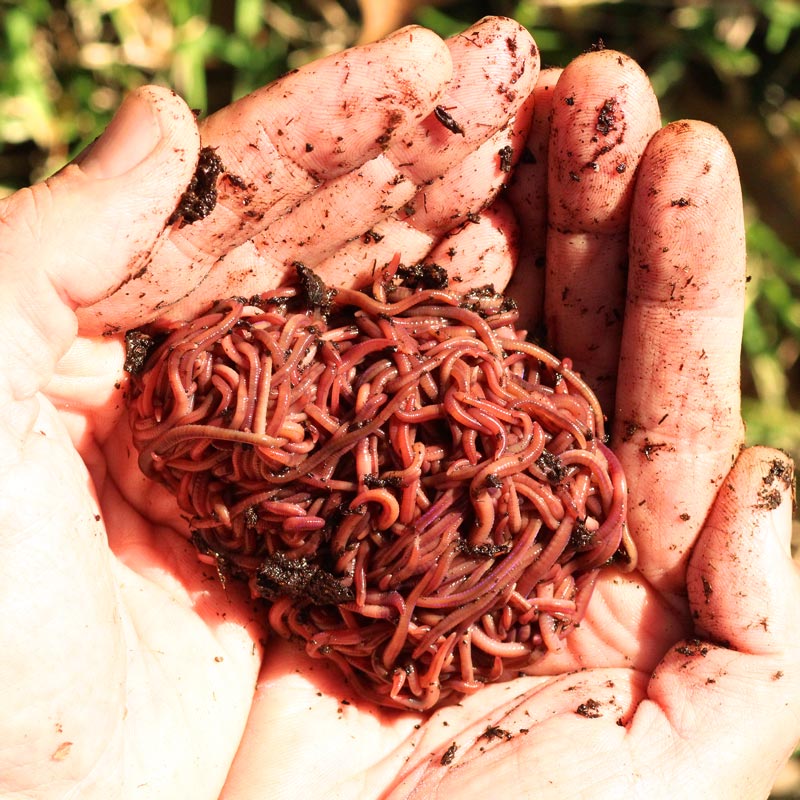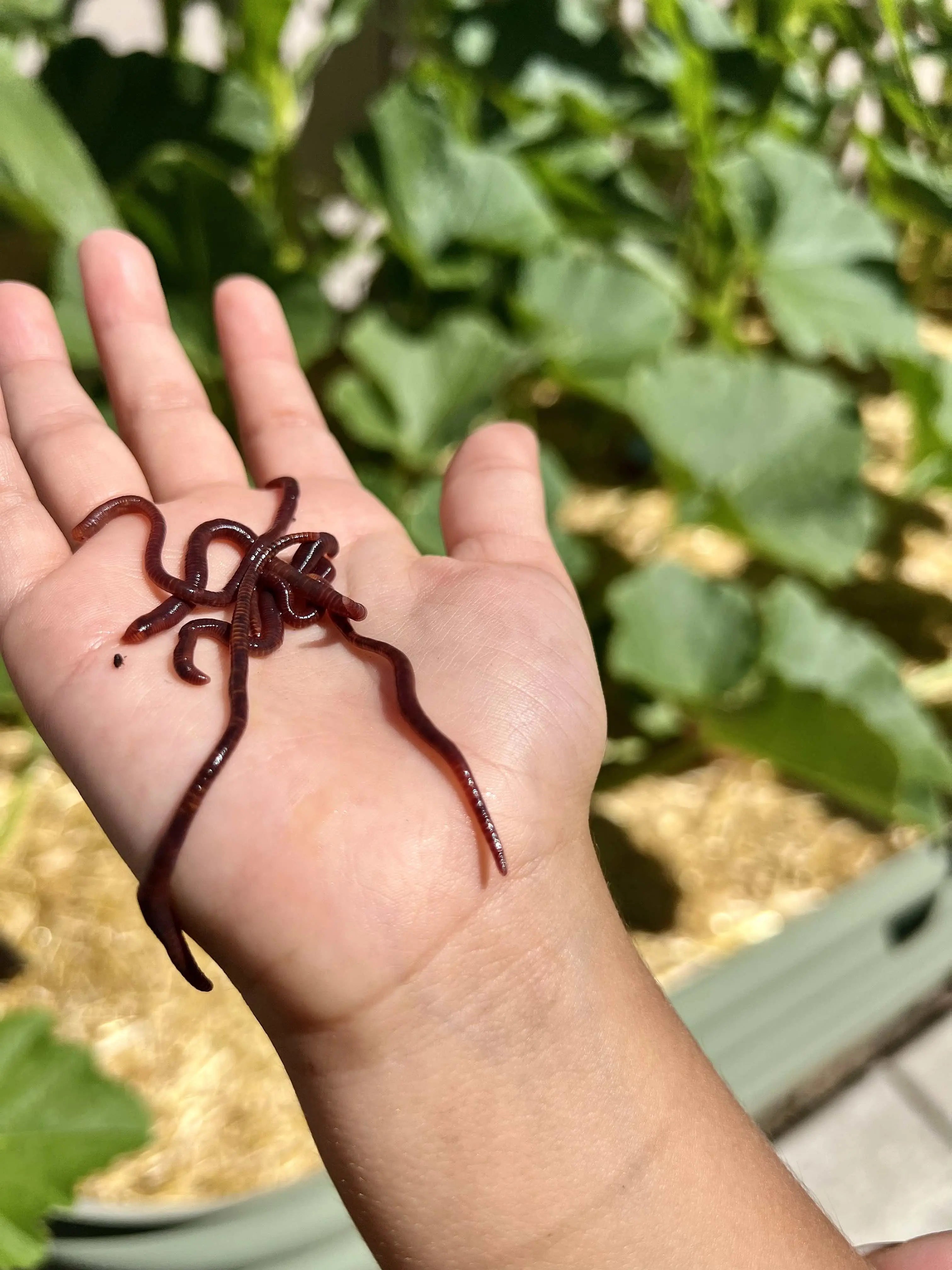Take Care of Your Lawn with the Best Products from Lake Hickory Bait
Take Care of Your Lawn with the Best Products from Lake Hickory Bait
Blog Article
Open the Tricks of Red Wigglers: Your Guide to Composting Success
The integration of red wigglers into composting techniques offers a considerable chance for boosting soil health and promoting sustainability. These microorganisms are not merely reliable recyclers of organic waste; they use a myriad of benefits that can change yard monitoring. Comprehending their needs and habits is important for maximizing their potential, from establishing a suitable worm bin to feeding them the right materials. As we discover the vital parts of effective vermicomposting, one could question exactly how these tiny animals can result in a much more dynamic and productive garden community.

What Are Red Wigglers?
(Red Wiggler Express)Red wigglers, scientifically called Eisenia fetida, are a types of earthworm largely used in composting as a result of their exceptional capability to decay organic issue effectively. These worms are characterized by their reddish-brown pigmentation and a segmented body, typically gauging in between 3 to 4 inches in length. Unlike various other earthworm species, red wigglers grow in rich, natural environments, making them suitable for vermicomposting systems.
Indigenous to The United States And copyright, they are often discovered in decaying leaves and compost heap, where they play an important duty in nutrient recycling. Their adjustment to residing in a wet, aerobic setting enables them to take in huge quantities of organic waste, simplifying into nutrient-rich castings that boost soil health and wellness.
Red wigglers reproduce rapidly, with a single worm capable of generating numerous cocoons each week, each including multiple hatchlings. Understanding the biology and actions of red wigglers is vital for optimizing their capacity in composting applications.
Benefits of Using Red Wigglers
Utilizing the power of red wigglers in composting supplies numerous benefits that improve soil wellness and advertise lasting waste monitoring. These remarkable microorganisms successfully damage down natural issue, transforming kitchen area scraps and lawn waste into nutrient-rich vermicompost. This finished product is extremely helpful for plant development, as it enhances soil structure, raises dampness retention, and boosts nutrition accessibility.

(Lake Hickory Bait)Furthermore, the existence of red wigglers in your composting system can speed up the Red Wiggler Express composting procedure, creating high-quality compost in a fraction of the time contrasted to standard techniques. The castings produced by these worms are additionally including advantageous microorganisms that additionally enrich the dirt community.
Establishing Up Your Worm Bin
Creating a reliable worm bin is an uncomplicated process that can dramatically improve your composting initiatives. The initial step is choosing a suitable container. Worm bins can be made from plastic storage space bins, wood boxes, or readily offered worm containers. Guarantee the container has adequate drain and ventilation holes to preserve optimum wetness degrees and air movement.
Following, prepare the bed linens material, which serves as the worms' habitat. A mix of shredded newspaper, cardboard, and coconut coir works well, supplying a comfy setting for the worms.

Feeding Your Red Wigglers
To make certain the health and wellness and efficiency of your red wigglers, it is important to provide them with a well balanced diet plan that meets their dietary needs. Red wigglers grow on a diverse range of natural materials, which not just provide necessary nutrients yet also advertise effective composting.
Start by integrating kitchen area scraps such as vegetable peels, fruit cores, and coffee premises. Avoid citrus fruits, onions, and garlic, as these can be destructive to worm wellness. Furthermore, present shredded paper, cardboard, and completely dry fallen leaves to develop a well-aerated setting.
Feeding frequency ought to be monitored; normally, worms can consume half their body weight in food weekly. It is critical to prevent overfeeding, as excess food can bring about unpleasant odors and draw in bugs. A good method is to include food in percentages, allowing worms to process it prior to introducing a lot more.
Keeping moisture degrees is also important; the bed linens should perspire yet not soggy. Be certain to routinely inspect the temperature level and pH degrees of the bin to guarantee an ideal setting for your red wigglers, inevitably enhancing their composting efficiency.
Harvesting and Utilizing Compost
A successful composting process with red wigglers culminates in the rich, dark garden compost referred to as vermicompost, which can dramatically boost soil health and wellness and plant growth. Collecting this nutrient-dense product normally happens every 3 to six months, depending on the size of your system and the amount of natural matter being processed.
To collect, delicately separate the compost from the worms and any kind of undecomposed products. One reliable technique involves relocating the materials of the container away and including fresh bed linens and food to the empty space, motivating the worms to move. After a few days, the garden compost can be accumulated from the contrary side.
It is important to utilize vermicompost appropriately to optimize its benefits. By incorporating vermicompost into your gardening routine, you not only recycle organic waste however likewise produce a flourishing community that sustains lasting gardening practices.
Conclusion
In summary, red wigglers offer as exceptional allies in composting initiatives, changing natural waste right into nutrient-rich vermicompost. By recognizing the optimum conditions for their habitat, feeding needs, and garden compost harvesting strategies, gardeners can enhance dirt health and wellness and promote plant vigor.
Report this page